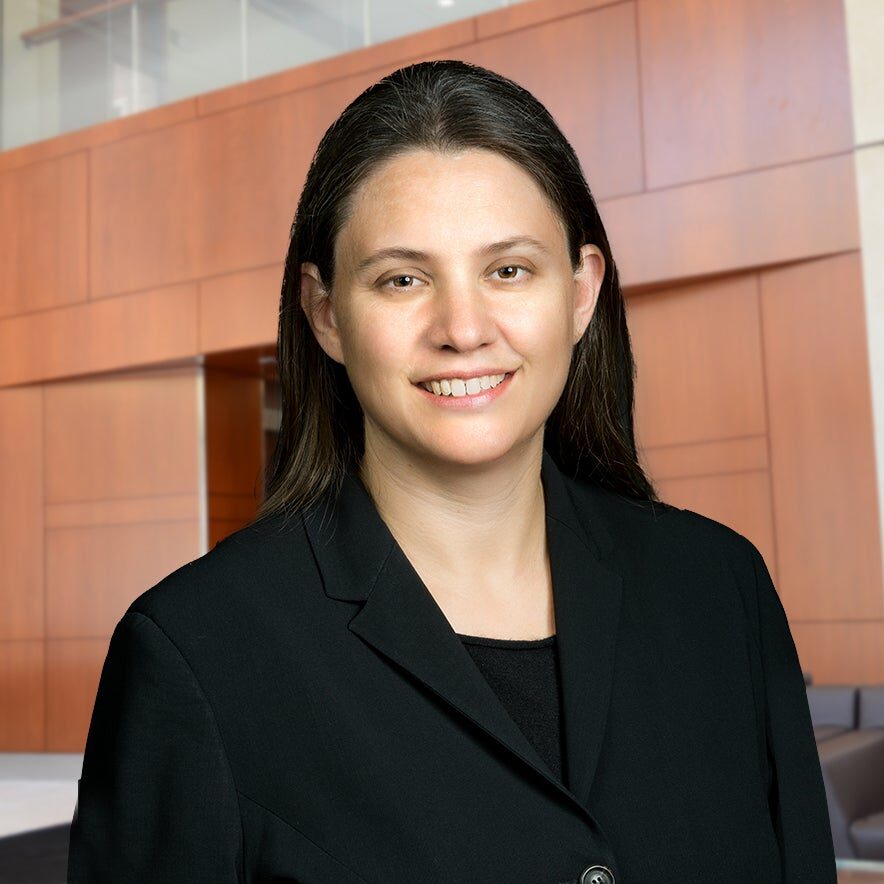The Dr. Bruce I. Jacobs Master of Science in Quantitative Finance program offers rigorous learning with an intensive core curriculum focused on finance fundamentals.
Our expansive array of electives allows students to tailor their learning based on individual goals and interests.
Program Timeline
● Application
● Academics
● Career Development
● Cohort Experiences
Third Year (Junior)
Fall
Plan prereqs & explore quant finance ●
Info sessions & networking ●
Attend cohort info sessions ●
Jan-Feb
Apply & gain admission ●
March
Advanced Registration: 4th-year Jacobs MSQF courses ●
Summer Before Fourth
Online prereqs, if needed ●
Fourth Year (Senior)
Fall
FNCE 5050; optional 5170/5250 ●
Start internship search ●
Kickoff & faculty meet ●
March
Advanced Registration: 5th-year Jacobs MSQF courses ●
Spring
Complete prereqs & electives ●
Secure internship ●
Case challenge & social ●
Summer After Fourth
Quant finance internship ●
Fifth Year
Fall
Core Jacobs MSQF courses & electives ●
Recruitment & career management ●
Cohort networking events ●
Spring
Practicum & electives ●
Job search & presentations ●
Capstone celebration ●
Prerequisites, Courses & Electives
The Jacobs MSQF degree requires 10 credit units (CU) at the graduate level (5XXX or above), which comprises 3 categories: Foundations, Required Courses, and Electives. It is designed as a distinct graduate degree and requires a full fifth year of study. The additional year is integral to the curriculum, particularly for the practicum and internship components that are central to the program. The 10 CUs required for the program cannot be double counted toward any other program. Each CU must be earned specifically for the Jacobs MSQF degree.
Prerequisite Foundations (2 CUs):
FNCE 1000 Corporate Finance and ACCT 1010 Accounting and Financial Reporting are both required pre-admission or by the end of fourth year.
***MATH EXPECTATION***
Prior to admission, students must have completed MATH 2200 (or higher) or ESE 2030 Linear Algebra with Applications to Engineering and AI. An equivalent course may be used to satisfy this requirement with the permission of the Faculty Director.
Required Courses (6 CUs):
Investment Management, Financial Derivatives, Fixed Income Securities, Data Science for Finance, Foundations of Asset Pricing, and Applied Research Practicum
*NOTE 1: Students who took any of FNCE 2050, FNCE 2170, and FNCE 2250 before their fourth year and received at least a “B-” grade can waive the requirement to take FNCE 5050, FNCE 5170, and FNCE 5250, respectively, toward the Jacobs MSQF program. Any student waiving one of these courses will need to replace it with an elective to get to 10 CUs.
*NOTE 2: A student who has not taken FNCE 1000 or ACCT 1010 before admission will need to take them by the end of the fourth year, which will require an additional 1 or 2 CUs.
Electives (4 CUs):
Students may select from over 30 Wharton courses spanning finance, accounting, statistics, business economics, operations, and real estate and 13 Penn courses in computer science, engineering, and math.
Beyond these pre-approved electives, students may take other courses as electives with the permission of the Faculty Director. Approval is given on a case-by-case basis and will depend on whether the course is sufficiently quantitative and relevant to a sector of Finance. In any case, at least three of a student’s four electives must be Wharton courses.
Course Lists
PREREQUISITE FOUNDATIONS (2 CUs) – Required pre-admission or by the end of 4th year
PREREQUISITE FOUNDATIONS (2 CUs)
Required pre-admission or by the end of 4th year:
FNCE 1000 Corporate Finance
ACCT 1010 Accounting and Financial Reporting
Total Foundations: 2
***MATH EXPECTATION***
Prior to admission, students must have completed MATH 2400 Calculus Part III (or higher) or ESE 2030 Linear Algebra with Applications to Engineering and AI. An equivalent course may be used to satisfy this requirement with the permission of the Faculty Director.
CORE REQUIREMENTS (6 CUs)
CORE REQUIREMENTS (6 CUs)
FNCE 5050 Investment Management
FNCE 5170 Financial Derivatives
FNCE 5250 Fixed Income Securities
FNCE 5370 Data Science for Finance
FNCE 5570 Foundations of Asset Pricing
FNCE 5900 Applied Research Practicum*
*Students complete a hands-on research project with industry partners.
- Students work in groups of 4-6 to create research questions that provide realistic previews of job-related tasks in quantitative asset management positions like quantitative analysts, data scientists, risk managers, quantitative researchers, and fundamental research analysts.
- Finance faculty oversee the Applied Research Practicum.
- Practitioners on the Jacobs MSQF Advisory Board, representing a prominent quantitative asset management firm, pose research questions, provide real-world data, and attend final presentations.
Total Core Requirements: 6
ELECTIVES (4 CUs) - Students must choose at least 3 of the below
ELECTIVES (4 CUs)
Students must choose at least 3 of the below:
ACCT 5700 Forensic Analytics
ACCT 7420 Accounting and Business Analysis
ACCT 7470 Financial Disclosure Analytics
BEPP 7640 Climate and Financial Markets
BEPP 8050 Risk Management
FNCE 5070 Valuation
FNCE 5190 International Financial Market and Cryptocurrencies
FNCE 5310 Global Valuation and Risk Analysis
FNCE 5380 Capital Markets
FNCE 5390 Behavioral Finance
FNCE 9210 Introduction to Empirical Methods in Finance
OIDD 6530 Mathematical Modeling and Its Application in Finance
OIDD 7770 Intro to Python for Data Science
OIDD 9120 Intro to Optimization
OIDD 9300 Stochastic Models I
OIDD 9310 Stochastic Models II
OIDD 9340 Dynamic Programming
REAL 7210 Real Estate Investments
REAL 8700 Real Estate Data Analytics
STAT 5100 Probability
STAT 5150 Advanced Statistical Inference I
STAT 5160 Advanced Statistical Inference II
STAT 5200 Applied Econometrics I
STAT 5210 Applied Econometrics II
STAT 5330 Stochastic Processes
STAT 5350 Forecasting Methods for Management
STAT 5420 Bayesian Methods and Computation
STAT 5440 Advanced Bayesian Modeling
STAT 5710 Modern Data Mining
STAT 5800 Advanced Statistical Computing
STAT 5810 Convex Optimization for Statistics and Data Science
STAT 5900 Causal Inference
Total Electives: 4
PENN ELECTIVES - Students may choose up to 1 of the below
PENN ELECTIVES
Students may choose up to 1 of the below:
CIS 5150 Fundamentals of Linear Algebra and Optimization
CIS 5190 Applied Machine Learning
CIS 5200 Machine Learning
CIS 5450 Big Data Analytics
CIT 5900 Programming Languages and Techniques
CIT 5910 Introduction to Software Development
ENM 5310 Data-Driven Modeling and Probabilistic Scientific Computing
ESE 5420 Statistics for Data Science
ESE 5450 Data Mining: Learning From Massive Datasets
MATH 5130 Computational Linear Algebra
MATH 5300 Mathematics of Finance
MATH 6480 Probability Theory
MATH 6490 Stochastic Processes
Faculty Perspectives
Wharton’s strength in finance is built on the expertise of senior faculty whose research and teaching have shaped the field for decades. Many of these professors have taught the foundational courses that form the core of the Jacobs MSQF program curriculum and are recognized worldwide for their contributions as scholars, educators, and thought leaders. From advancing research in asset pricing and data science to guiding students through the complexities of corporate finance and risk management, their work exemplifies the academic depth and demonstrated impact that make Wharton a global leader in finance.
The perspectives below highlight how Wharton faculty approach finance — combining rigor, real-world relevance, and the distinctive opportunities that define the Jacobs MSQF program.

Winston Wei Dou
Associate Professor of Finance
“The Jacobs MSQF program is designed for students who want not just to study finance, but to shape its future. At its core, the program blends the rigor of modern financial economics with the excitement of cutting-edge technologies like AI and machine learning.”
Professor Dou’s research explores the intersection of financial economics and AI, including AI-powered trading, market design, and financial stability. He has taught Financial Derivatives, which provides essential technical foundations for the Jacobs MSQF program.

Stephan Dieckmann
Senior Lecturer of Finance
“Every student should master derivative securities. They are widely used for both hedging and speculation, and remain a cornerstone of modern quantitative finance.”
Professor Dieckmann’s expertise lies in derivatives, fixed income markets, and risk management. He has taught Fixed Income Securities, one of the foundational courses supporting the Jacobs MSQF program.

Itamar Drechsler
Ervin Miller-Arthur M. Freedman Professor, Professor of Finance; Co-Director, Rodney L. White Center for Financial Research
“The Jacobs MSQF offers students a unique opportunity to learn and apply advanced quantitative finance. The program brings together leading experts from Wharton and the financial industry, and it prepares students to master concepts like how risk is transformed when assets are combined into portfolios — the essence of quantitative investing.”
Professor Drechsler’s research is highly empirical and data-intensive, aligning with the modern finance industry, and covers asset pricing, banking, and monetary policy. He helps students bridge theory and practice through hands-on analysis of financial data in assignments and practicums.

Michael Roberts
William H. Lawrence Professor, Professor of Finance
“Financing is about decision making, which should be evidence-based. Data and data analytics provide the evidence for intelligent decision making and are the engine for improving decision making.”
Professor Roberts specializes in empirical corporate finance, financial contracting, and econometrics. He has taught Data Science for Finance, a key course that connects data-driven analysis with real-world market problems.

Nick Roussanov
Moise Y. Safra Professor, Professor of Finance
“Mastering factor analysis in empirical asset pricing is crucial for quantitative investing professionals, as factors are a central concept in the asset management industry — whether they are seen as sources of return or tools of risk management.”
Professor Roussanov’s research focuses on asset pricing and macro-finance. He has taught Introduction to Empirical Methods in Finance, a course that informs the empirical foundation of the Jacobs MSQF program.

Jessica Wachter
Dr. Bruce I. Jacobs Professor in Quantitative Finance, Professor of Finance
“What excites me most is the chance for students to learn both the theoretical foundations of finance and how those ideas play out in practice. The Jacobs MSQF offers a rare combination: depth in technical modeling, and breadth across the real-world institutions and regulations that shape modern finance.”
Dr. Wachter’s research bridges asset pricing theory with real market events, and she has taught Wharton’s Foundations of Asset Pricing course, a cornerstone of the Jacobs MSQF program curriculum.




